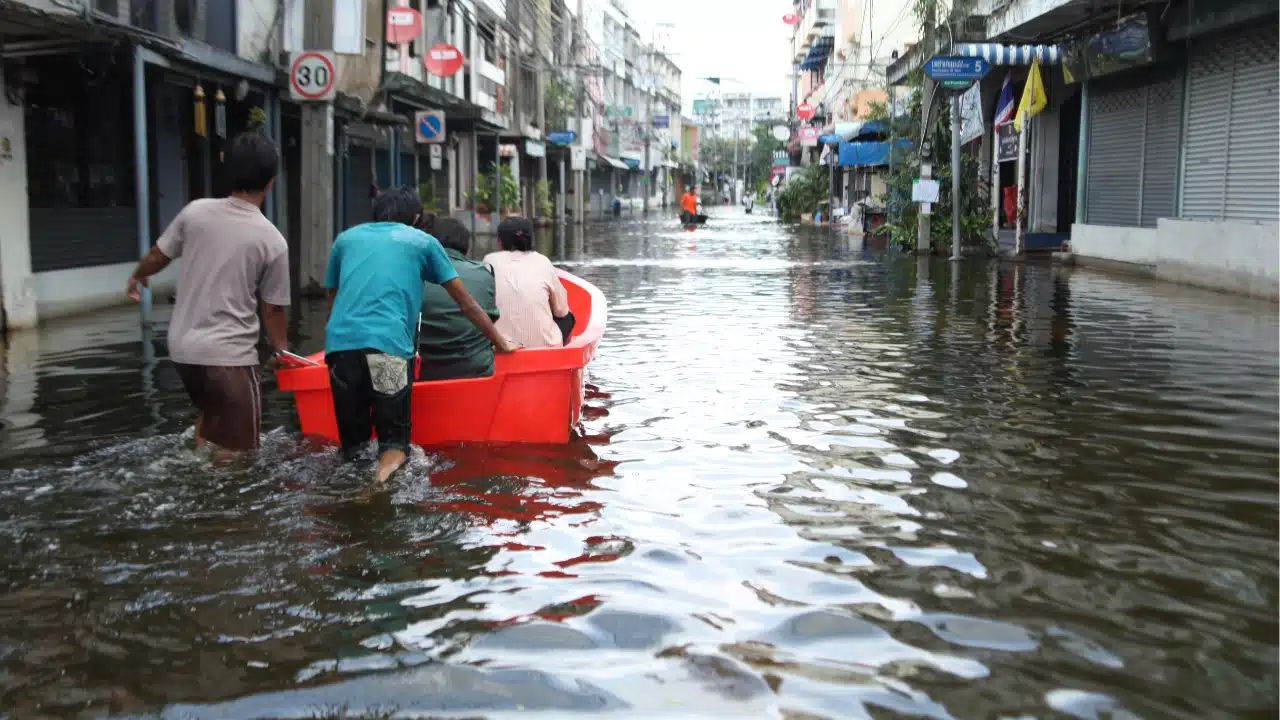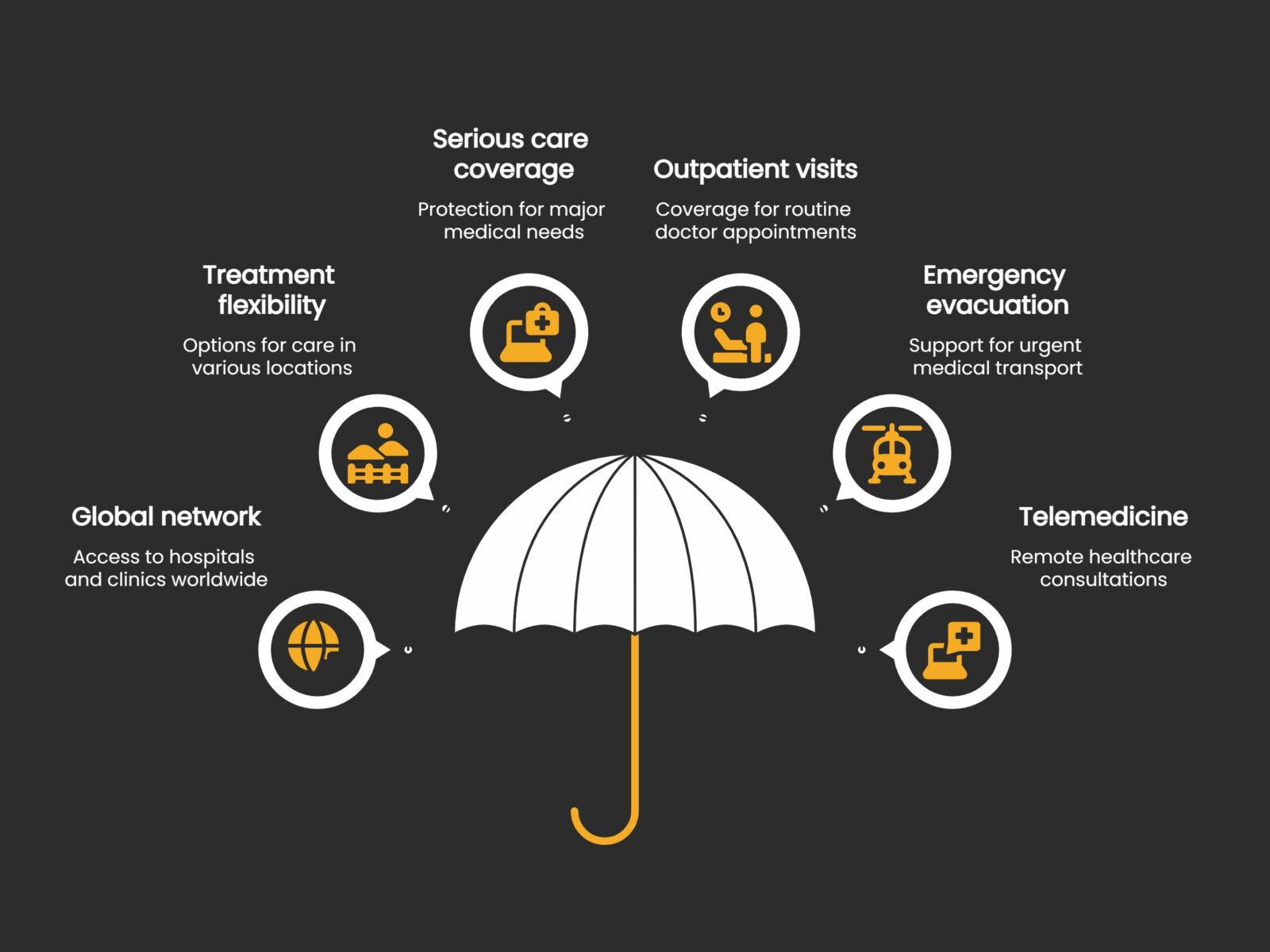Monsoon season in Thailand: Is your health insurance ready for the unexpected?
Do not let this season rain on your parade with great coverage

Thailand’s rainy season brings heavy rain that helps the land but also causes health problems. Flooded roads can lead to accidents, and standing water can spread illnesses like dengue fever. It can also be harder to get medical help quickly. In this article, you’ll learn about the health risks during the monsoon season and why it’s important to have good health insurance, like a plan from Cigna, to keep you safe and covered.
On this page
| Jump to Section | Description |
|---|---|
| Major health threats during the monsoon | Thailand’s rainy season brings health risks such as dengue fever, road accidents, and waterborne illnesses. Awareness is key to staying safe. |
| Where basic health insurance fails in the rainy season | Basic insurance often doesn’t cover emergency transport, private hospitals, or seasonal illnesses common in the monsoon, leaving gaps in coverage. |
| The importance of good health insurance during Thailand’s rainy season | Good insurance ensures access to quality care without the financial burden of hospital stays, medical tests, and emergency services during the monsoon. |
| Cigna’s health insurance during Thailand’s rainy season | Cigna offers extensive coverage, including hospital stays, medical tests, and 24/7 support, perfect for navigating Thailand’s rainy season health risks. |
| Why Cigna is a smart choice for the monsoon season | Cigna’s flexible, comprehensive health plans provide the protection needed during the monsoon, with coverage for both serious illnesses and emergencies. |
Major health threats during the monsoon

Thailand’s monsoon season is important for farming, but it also brings many health problems. Knowing the risks can help you stay safe and choose the right health insurance.
Mosquito-borne diseases
When rainwater collects, it becomes the perfect place for mosquitoes to breed. This leads to more cases of dengue fever and chikungunya. These illnesses cause high fever, joint pain, and tiredness. If not treated in time, they can become serious. Dengue is especially common during the rainy season.
Accidents and injuries
Rain makes roads wet and slippery. This causes more falls, motorbike crashes, and car accidents. Poor visibility and flooded streets make travel risky. Motorbikes are very popular in Thailand, but they can be dangerous when the roads are wet.
Dirty water and food poisoning
Flooding can mix dirty water with clean supplies, spreading germs. This leads to stomach problems, skin infections, and diseases like typhoid and leptospirosis. Places with poor drainage or hygiene are at higher risk.
Delays in emergency care
Heavy rain can block roads and slow down ambulances. Sometimes, it’s even hard to reach hospitals. These delays can make health problems worse if care is not given quickly.
It’s important to know these risks and take care of them during the rainy season. Having good health insurance can help you get the right care without delays or high costs.
Where basic health insurance fails in the rainy season

Having basic health insurance is better than having none, but during Thailand’s monsoon season, it may not be enough. Here’s where simple insurance plans often don’t give you the protection you really need:
Not enough emergency help in rural areas
In small towns or places with floods, it can be hard to get medical help fast. Roads may be blocked, and ambulances might take a long time. Basic insurance usually doesn’t cover emergency transport to better hospitals. This can be a big problem if the local clinic can’t treat you properly.
Private hospitals can cost a lot
Many people prefer private hospitals in Thailand because they’re faster and have better service. But basic insurance often doesn’t cover private care, or it covers only a small amount. If you need treatment for dengue fever or injuries from a motorbike crash, the bills can be high if you don’t have full coverage.
No cover for common monsoon illnesses
Some simple health plans don’t include treatment for tropical or seasonal diseases like dengue, chikungunya, or infections from dirty water. These illnesses are common during the rainy season, and paying for them yourself can be costly.
Basic insurance doesn’t always give you enough help during the rainy season. A better health plan covering private hospitals, emergency transport, and monsoon-related illnesses can save you money and quickly get you the care you need.
The importance of good health insurance during Thailand’s rainy season

Thailand’s monsoon season brings health problems that can lead to big medical bills if you’re not ready. Without proper insurance, getting sick or injured during this time can mean paying a lot, waiting too long for help, or getting poor treatment.
Avoiding high medical costs
If you get dengue fever, an infection, or are hurt in an accident, treatment can be costly, especially if you need to stay in the hospital or see a specialist. Without good health insurance during the monsoon season, you may have to pay for doctor visits, tests, medicine, and emergency care yourself. This can be hard to handle, especially for expats or visitors who don’t know the local system.
Getting care when you need it
Good health insurance gives you access to many hospitals and clinics, including private ones with better service and shorter waiting times. During the rainy season, when public hospitals can get crowded or are hard to reach because of floods, this can make a big difference.
Protection from local health risks
A strong health plan should include coverage for diseases common in the monsoon season, like dengue fever, chikungunya, and leptospirosis. Many basic plans don’t. Also, some insurance offers emergency evacuation, which is helpful if you’re stuck and can’t reach a hospital due to bad weather or blocked roads.
Feeling safe and ready
Having good insurance means you don’t have to worry all the time. You can live your life knowing that if something happens, you’ll get the care you need without big surprises or delays.
Cigna’s health insurance during Thailand’s rainy season

Cigna offers international health insurance plans made for expats and long-term travellers in Thailand, which will help during the monsoon season. These plans give you access to private hospitals in cities like Bangkok, Chiang Mai, Pattaya, and Phuket—so you can get good care when you need it most.
During the rainy season, floods and travel problems can make it hard to reach a hospital. Cigna helps you stay covered with benefits like:
- Hospital stays
- Medical tests
- Specialist care
They also offer 24/7 support in different languages, so you can get help anytime if there’s an emergency.
Why Cigna is a smart choice for the monsoon season

Cigna’s health plans are flexible and built to handle the challenges of Thailand’s rainy season. Their coverage includes:
- A trusted global network of hospitals and clinics
- Treatment in big cities or remote areas
- Cover for serious care like MRIs, ICU stays, cancer treatment, and transplants
You can also add extras like:
- Outpatient visits
- Emergency medical evacuation
- Online doctor visits (telemedicine)

Cigna works directly with hospitals for billing, so you won’t need to pay first and claim later. They also have a local emergency number in Thailand to make things faster and easier when you need help most.
Thailand’s rainy season brings health problems like dengue fever, road accidents, and sickness from dirty water. Floods can also slow down access to hospitals. Basic health insurance often doesn’t provide enough help during this time. It may not cover private hospitals, emergency transport, or common rainy season illnesses. That’s why having strong health insurance, like a plan from Cigna, is important. Cigna offers hospital stays, specialist care, 24/7 support, and extra services like medical evacuation and online doctor visits. With the right cover, you can stay safe and worry less during the rainy months. If you want to learn more, read this guide on private health insurance in Thailand.
Latest Thailand News
Follow The Thaiger on Google News:


























